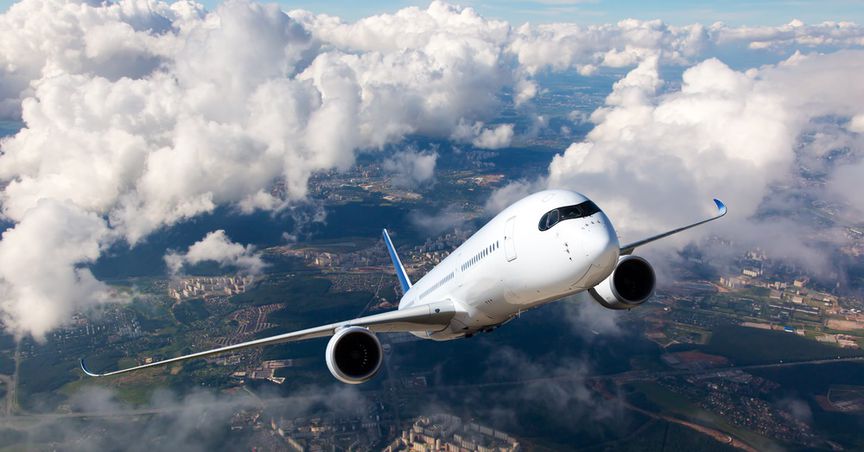After almost a century, the world is once again suffering from a deadly pandemic known as Covid-19. As per the latest reports of World Health Organization (WHO), 7.25 million cases and over 412,000 deaths have been reported as on 11th June 2020, even though the situation in many countries’ have been improving of late, globally it is worsening.
Investors are sceptical about investing in various sectors, there are potential uncertainties moving in the financial markets, and people are losing their jobs. These factors are sure to hit the GDP. If we talk one industry in particular, Aviation, it has been battered badly with companies having almost nil revenue and the future looking bleak, amid concern of people for flying with fear of Covid-19 still persisting and government-imposed strict quarantine rule of 14 days.
French Government comes to rescue the aviation players
Amid all the chaos in the industry, there has been some reason to cheer as well, in order to save the aerospace industry, French Government has decided to put in 15 billion Euros into the French aerospace industry in order to save it from crashing. The rescue package was announced by the Finance Minister of France, Bruno Le Maire on Tuesday, 9th June 2020.
The unemployment rate in France reached its lowest in almost 5 years between January and March, but it is slowly picking up. The rescue package saved the jobs of 100,000 employees of the aviation sector.
Mr. Maire also said that if they hadn’t interfered, the aerospace industry would have lost one-third of the jobs. The industry is worth 60 billion Euros a year.
However, there are some conditions placed by the French government to access the aid, the company accepting the government money will have to invest more and more rapidly in electric, hydrogen or other lesser-emission aircraft.
French Aerospace Industry and how it has been faring
France is the world’s second-largest exporter in aeronautical field with the well-known plane maker named Airbus, which accounts for roughly 50 per cent of the export in aeronautical sector.
Since the Covid-19 health crisis began, the operations of flights from the national carrier Air France had been shut down. But as of late, they have resumed their services with approximately 15 per cent of the normal capacity. Out of the large 224-aircraft fleet, they are using 75 presently.
The Air France authority has undertaken certain safety measures for its passengers such as-
- Compulsory wearing of surgical masks while boarding
- Body temperature measurement
- Air filtration in cabins
- Cleaning cabin and accessories
- Hygiene measures at airports
British economy and the importance of the aviation sector
British’s economy has been the 6th largest in the world, but post Brexit referendum took place in June 2016, it has slowed down. Since 2018, investment in the country declined, and consumption also got hampered due to negligible growth in real income. Public debt has been recorded at above 85%, and the unemployment rate is estimated to be at 3.8%.
People are losing their jobs in the face of COVID-19, that will further hurt the UK GDP in the current financial year, and consumption will also slowdown in the wake of lower disposable income with the consumers. Almost 1 million people in the UK have filed for unemployment benefits.
Due to all these factors, the GDP of UK, which increased by 1.4% in 2019 is as per reports from International Monetary Fund (IMF) is likely to decline to 6.5% in 2020, however, there are hopes it would bounce back to rise by 4.0% in 2021, according to IMF.
If we talk about the aviation sector and its role in the economy of the United Kingdom, the UK aviation sector directly employs 111k person, 3.8k apprentices, it is estimated to having GBP 35.9 billion turnover and GBP 34.2 billion exports in 2019. Hence, it is clear that the aviation industry’s contribution to the productivity growth of the economy is not less than any other modes of transport
The major aviation companies of the nation include Virgin Atlantic, British Airways, FlyBe, Jet2.com and EasyJet
On 11th June 2020, while writing at 12:15 PM GMT, International Consolidated Airlines Group SA (LON:IAG) (parent of British Airways) shares were clocking a current market price of GBX 270.40 per share.
EasyJet Plc (LON:EZJ) shares were clocking a current market price of GBX 770.60 per share on 11th June 2020, while writing at 12:17 PM GMT.
Measures to Be Taken by The UK Government
Covid-19 pandemic has not only taken a toll on people’s lives but also affected the economy badly. But slowly as the lives of individuals are coming back on track, the thing will fall back to place in some time soon.
Of all the sectors that have been affected, the aviation industry is among one of them. UK airlines have been forced to ground hundreds of aircraft and are allowed to run with minimal capacity in order to limit the financial impacts of the pandemic. With the start of phased lockdown easing, the demand of passengers has started increasing as they are gaining confidence to travel with the ease in restrictions.
The aerospace industry has been one of the important sectors of the UK contributing to a large chunk of its GDP; hence the government should ensure speedy recovery in this sector. The industry has been asking the government to invest in the future success of the industry, and help it stand against the global competition
The AOA (Airport Operators Association), Airlines UK and ADS Group have called the government to:
- Extend the business rate relief measures
- Extend the Job Retention Scheme or mould it such that employee retention can be easy
- Provide viable financial support schemes
- Work internationally to ensure a coordinated approach
It’s not only the French government which has come forward in support of the aviation sector but other nations have also announced measures to support the industry; the US aviation sector has bagged the assurance of the government’s billion-dollar of grants and loans. Hong Kong, Germany too have announced support for their airlines; now it’s the UK government’s which needs to act firmly to support the sector and restore the fate of its passengers and to realise the long long-term economic goals.





